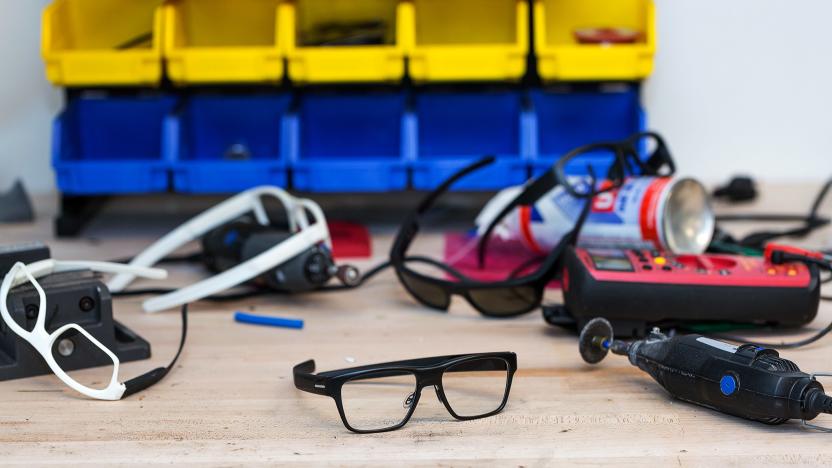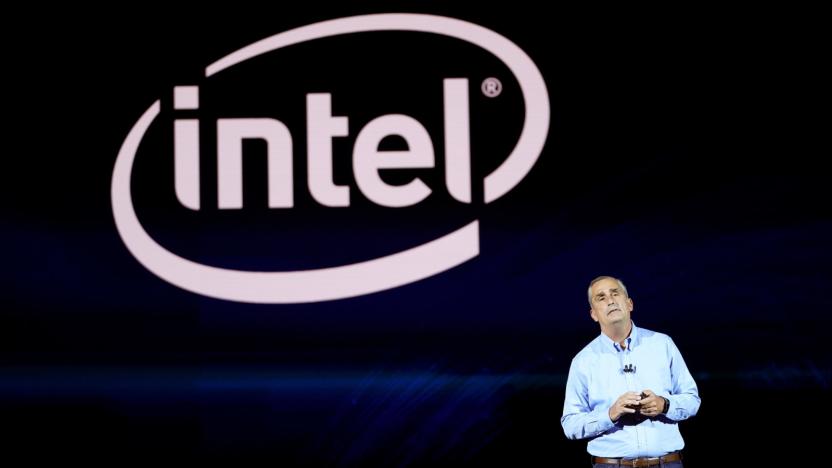Vaunt
Latest

Intel cancels its smart glasses due to lack of investment
When Intel showed off its Vaunt smart glasses (aka "Superlight" internally) back in February, we had high hopes for a new wave of wearable tech that wouldn't turn us into Borgs. Alas, according to The Information's source, word has it that the chip maker is closing the group responsible for wearable devices which, sadly, included the Vaunt. This was later confirmed by Intel in a statement, which hinted at a lack of investment due to "market dynamics." Indeed, Bloomberg had earlier reported that Intel was looking to sell a majority stake in this division, which had about 200 employees and was valued at $350 million.

Intel unveils smart glasses that you might want to wear
Intel has launched an impressively light, regular-looking set of smart glasses called Vaunt, confirming rumors from Bloomberg and others. Seen by The Verge, they have plastic frames and weigh under 50 grams, a bit more than regular eyeglasses but much less than Google Glass, for example. The electronics are crammed into the stems and control a very low-powered, class one laser that shines a red, monochrome 400 x 150 pixel image into your eye. Critically, the glasses contain no camera, eliminating the "big brother" vibe from Glass and other smart glasses.

Intel spin-out could launch AR smart glasses this year
Intel is reportedly working on a pair of AR smart glasses codenamed 'Superlite.' According to Bloomberg, the wearable will be part of a new hardware division, possibly called Vaunt, and could launch later this year. Intel wants to sell a majority stake in the business, which it's currently valuing at roughly $350 million. Investment, of course, is about financial aid, but the company is reportedly interested in sales and design expertise too. The device itself supposedly connects to your phone over Bluetooth and overlays images with a laser-based projector that reflects off the lens.


